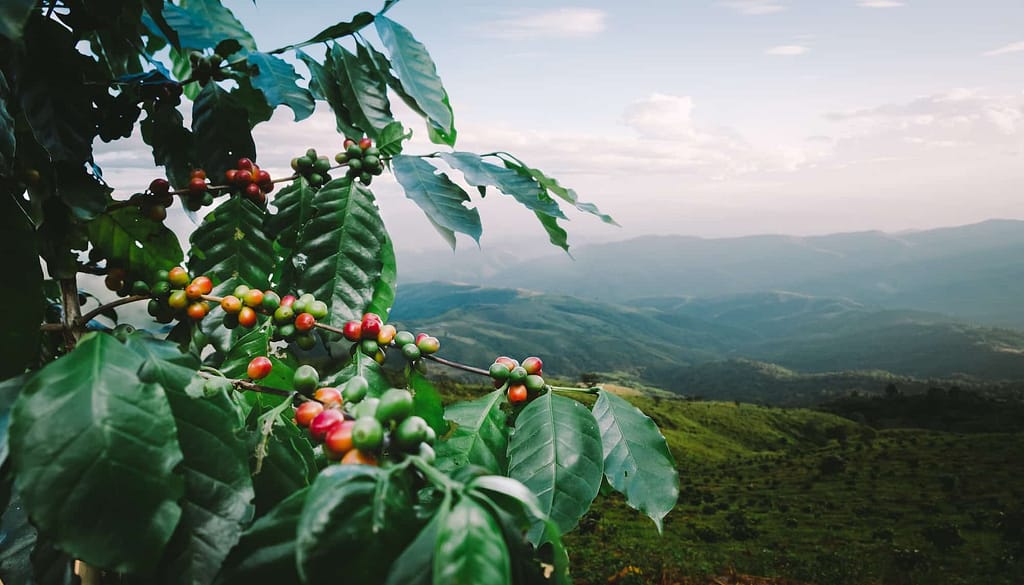[[{“value”:”

JDE Peet’s, Nestlé, and the Rudy & Alice Ramsay Foundation have supported international non-profit TechnoServe in conducting a study surrounding the benefits of regenerative coffee production.
The Regenerative Coffee Investment Case studied nine of the world’s leading coffee producing countries and found transitioning towards regenerative agriculture holds strong benefits for smallholder farmers, exports, greenhouse gas emission reduction, and local economies.
Smallholder farmer incomes increase by an average of 62 per cent, while coffee exports are boosted by 30 per cent, the report found.
“These findings confirm what TechnoServe has observed over decades of working with coffee farmers,” says Paul Stewart, Global Coffee Director at TechnoServe.
“Regenerative agriculture is not only good for nature, but essential for smallholder livelihoods and the future of the industry. It’s an investment that pays off for farmers, businesses, and the planet.”
The report focuses on smallholder production and provides detailed, country-level analysis across Brazil, Vietnam, Colombia, Honduras, Indonesia, Uganda, Ethiopia, Peru, and Kenya, covering farms that produce roughly 70 per cent of the world’s coffee.
In each country, consultation with agronomists and practitioners identified a list of practices that would generate the greatest impact for farmers and the environment, and draws on TechnoServe farm surveys, data from the partners, public research, and expert interviews.
It demonstrates how helping 3.2 million smallholder farmers adopt proven regenerative agriculture practices such as agroforestry or the use of organic waste to fertilise plants can yield business, environmental, and social returns.
Global Responsible Sourcing Director for JDE Peet’s Nadia Hoarau-Mwaura says the study presents a path to creating a more sustainable coffee industry.
“Over the past 10 years, we’ve championed regenerative agriculture through our Common Grounds sustainability program,” Hoarau-Mwaura says.
“We’ve experienced first-hand how implementing regenerative practices help farmers tackle long-standing challenges like profitability and climate impact. This detailed study offers a clear, practical path to implementing regenerative agriculture at scale – one that requires industry-wide collaboration.
“At JDE Peet’s, we are proud to support and help lead this transition.”
The research found that an average investment of US$560 million per year over seven years will be required to realise the opportunities presented in the report, but that investment would generate $2.6 billion in additional coffee exports and $2.1 billion in farmer income each year.
Key country-level opportunities include a potential 196 per cent increase in farmer income in Kenya, a 52 per cent rise in Uganda’s Robusta exports, and a 46 per cent cut in greenhouse gas emissions from Brazilian Arabica farms.
The Regenerative Coffee Investment Case is available to download here.
The post New research reveals benefits of regenerative coffee production appeared first on Global Coffee Report.
“}]]


